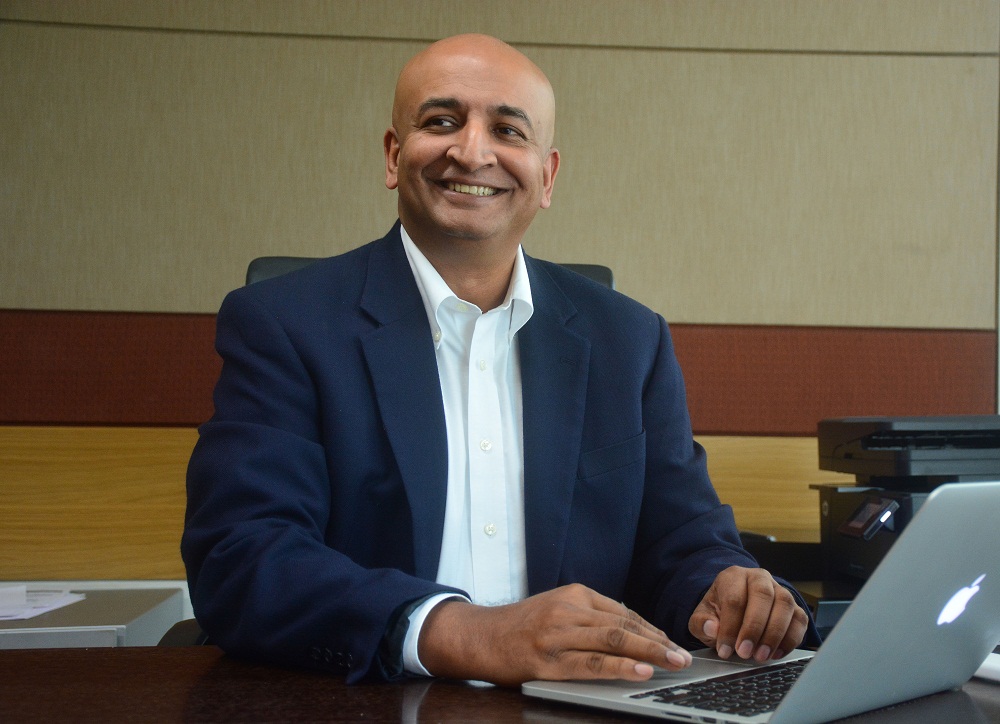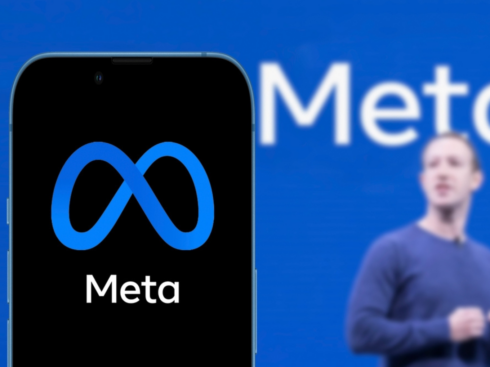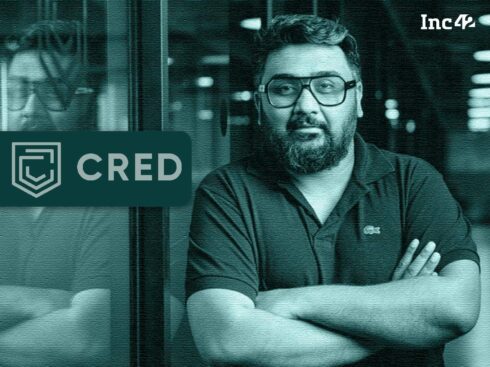[Note: This article is part of The Junction Series. Gautam Sinha will be speaking at “The Junction” in Jaipur in January 2017. Get a deep dive on entrepreneurship and more with him. Learn more about The Junction here!]
Gautam Sinha, CEO of Times Internet, the digital arm of the Times Group, is no newbie to tech. Right from his engineering days while pursuing Computer Science from BIT, Ranchi to working in DRDO with the late Dr. Abdul Kalam from 1986 -1991 in his integrated missile development programme and later on to pursuing an MS in Computer Science from the University of Iowa and working in an AI company to running his first startup CashEdge and now – serving as a Chief Executive Officer at Times Internet – Gautam has always felt the need to contribute and associate with Computer Science.
“Computer science was a new discipline in 1982 which was very new, at that point in time. It showed a lot of promise then. I always wanted to become an entrepreneur and Computer Science was the fastest way to reach there,” begins Gautam.
Thus, it hardly comes as a surprise that in his over nine years of association with the Times Internet group, Gautam along with Satyan Gajwani , CEO, has been actively involved in changing its DNA from a media company to a conglomerate consisting of leading large-scale digital businesses. With brands as diverse as TOI, ET, Magicbricks, Gaana, Dineout, Cricbuzz, Haptik, CouponDunia, ViralShots, Smartapp,ET Money, and Databack under its umbrella, the TIL group now claims to cover more than 50% of India’s Internet user base.
And Gautam’s task is cut out. “Our aim is to have satisfied engaged users in the digital arena.”
In a candid conversation with Inc42, Gautam reveals how the TIL group has transitioned over the years from a media company to a digital product company and what went behind it. And one major experience behind this drive has been Gautam’s own personal experience with a startup and his association with entrepreneurs.
From A Payments Startup To A Media Conglomerate
Gautam’s stint with entrepreneurship started in 1999 with US-based CashEdge – a payments startup which provided online funds transfer and personal financial account aggregation services to financial institutions. Prior to joining CashEdge as a COO/CTO, Gautam had raked in a lot of experience in various disciplines. He invested as an angel in the company which was founded by his colleague Sanjeev Dhar and Dilip Venkatachari.
After building compelling products and technologies for businesses in the US and Canada, CashEdge was sold to Fiserv Inc.- an American provider of financial services technology, in 2011, for $465 Mn. Working at CashEdge is how Gautam understand entrepreneurs – how they think, how they learn, and what their motivations are.
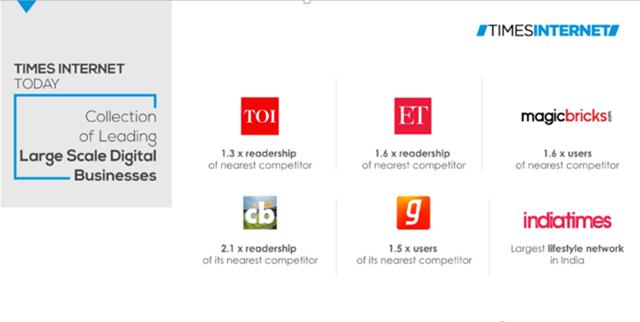
In 2007, he moved to India but was reluctant to work for an MNC. He explains, “I did not want to work for an MNC because, as per me, if you are not close to headquarters, you are not working on the right things.”
Media was something that he had never worked with and he thought why not give it a try. Thus, in 2007, he started his tryst with the Times Group as its CTO.
He quips, “Honestly ,my thought was since I haven’t worked in an Indian company, I might not even last a couple of months.”
But nine years later and Gautam’s association with the TIL group has only grown stronger. This year, in March, he eventually became the CEO, taking his association a strong step further.
Transitioning From A Media Company To A Digital Product Company
When Gautam joined Times Internet, it was an extension of a media company and like other legacy media companies, it used to outsource its entire tech requirements. So one of his first challenges was to define what tech can do for the company.
“A lot of Indian companies have no clue what a CTO or CIO does and TIL was one of them. They have vague notions of a CTO’s role! So bringing that clarity to an organisation about these roles, how they all contribute to the business, was my initial role,” he explains.
A lot of Indian companies have no clue what a CTO or CIO does and TIL was one of them.
So while media as an entity was doing reasonably well, the group did not want to limit themselves to it. Thus in 2012, it was decided that TIL would transition to a full stack digital products company.
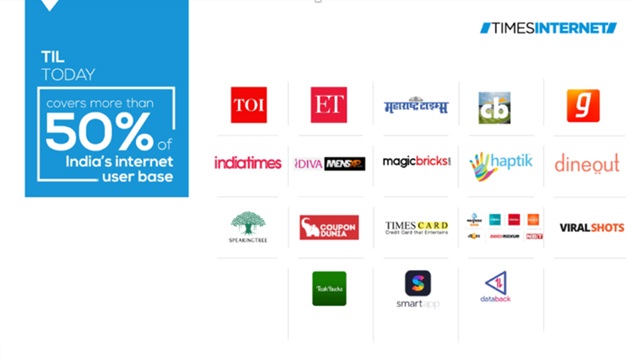
The idea was simple. “We want to be a digital product and tech company which gives us the playfield to go anywhere. And that also started to change the DNA of the company. The moment you say want to be a product company, you have to move very fast. The quality of teams has to be very good,” explains Gautam.
Thus, started the restructuring exercise and alongside it with other initiatives to build a conglomerate of digital businesses. One of them was the TLabs initiative – a startup accelerator – that was launched in 2012. The thought process was simple – if TIL was to be transformed, it needed to have as many entrepreneurs around it. TLabs became one of the mechanisms to bring about a cultural change given the fact that a culture of company this old could not change overnight.
Says Gautam, “Cultural transformation at minimum is a five years process. We made changes structurally to empower everyone. In one version of the company, everything was centralised. Now we suddenly wanted to move to a position such that no decisions should come to the COO or the CEO. If I am able to delegate everything to the right people, the company can scale faster.”
This was the thought which lay the ground for running the 37 businesses that it has today which can grow to 100 going forward. What was important to sustain this growth was the quality of people as well as instilling a culture that rewards people who perform.
Building Independent Businesses Under An Umbrella Brand
Gautam believes that there is significant competition outside the brand. And to be able to exist, you have to be better than anyone and everyone who is competing. One look at the people who are competing from outside shows they are startups – led by young, hungry entrepreneurs- people who want to do things at a rapid pace. And that’s what prompted TIL also to appoint business heads that have what you call “ startup DNA”
“Take TOI for example. Puneet Gupt, COO, TOI Digital (earlier with Unicon Financial Intermediaries Private Limited)is an IIT Delhi alum. Similarly, Prashan Agarwal, COO Gaana, (earlier with PropTiger) is from IIT Kanpur. They come with a degree and a hunger to take ownership. Most of the people we hire have this common thread – they want to achieve more,” says Gautam.
He adds that when TIL made the transition from a media company to a digital company and bringing in more entrepreneurs, the average age of a typical company employee started to become younger – and this was a gradual, implicit process. As per him, this age group has grown up understanding and consuming what TIL produces. They are not afraid of saying ‘this is what I want to achieve.’ They are not looking for retirement. Hence, TIL was successfully able to change the percentage of people who wanted to do more.
He adds that these are the people who don’t care what the umbrella brand is, they want to compete as if it’s their own business. That’s what TIL encouraged in all its businesses – acquired both organically and inorganically as it brought businesses like CouponDunia, Dineout, Cricbuzz, and others under its fold.
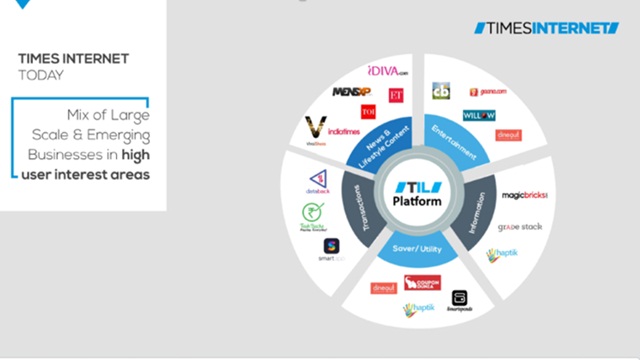
Gautam says that, typically, what happens when a large company acquires a small company is that the small company dies off due to the cultural imposition. So TIL encouraged all acquired companies to
maintain their culture and not move into TIL offices and for the business heads to create their own culture within TIL. And this is now manifested by the fact that within TIL itself, different businesses have different cultures – be it office timings or the colours of their office walls!
Another thing that TIL did to help build and assimilate these businesses under its umbrella was to experiment with HR during this time. In any conflict, HR sides with the management, not the employees. But when the directive is to change the culture, you want HR to take the side of employees and understand their problems. So TIL went ahead and hired an entrepreneur to run HR to understand what the teams want and not what protects the management.
Says Gautam, “We went through three years of transition so that HR could understand the business perspective better. The whole idea was that in order to stay true to our vision of changing culture, we wanted to change things which will a have meaningful impact.”
So today, practically everyone is an entrepreneur in the team in how they think about their business or the way they plan.
The Advantages Of Being An Umbrella Group
While businesses operate as independent entities in the group, there is no denying the fact that being a part of the TIL Umbrella comes with its own advantages. For starters, the group has a better ability to negotiate content as compared to a startup. All individual businesses also have access to a central platform-like identity, loyalty, ad-tech(Colombia), CMS and so on. It also leads to overall reduced cost of running a business – which Gautam claims is almost one-third of TIL’s closest competitor.
Also, since TIL is competing for consumer time, having 37 touch points in its fold means that it can engage consumers across wherever the consumer interest lies – be it news or music or following a game or dining out or utilities.
But the biggest advantage lies in the extended reach and what follows it - monetisation.
But the biggest advantage lies in the extended reach and what follows it – monetisation.
Gautam recounts that as a media company in 2012, it was all about reach and engagement. At that time, user views stood at 54 Mn. Today, they are over 178 Mn unique user views. The moment the group transitioned from a media company to a digital product company, it had the ability to monetise its reach even better. That has been made possible through its adtech platform which enables the group to move users across businesses depending on his interest.
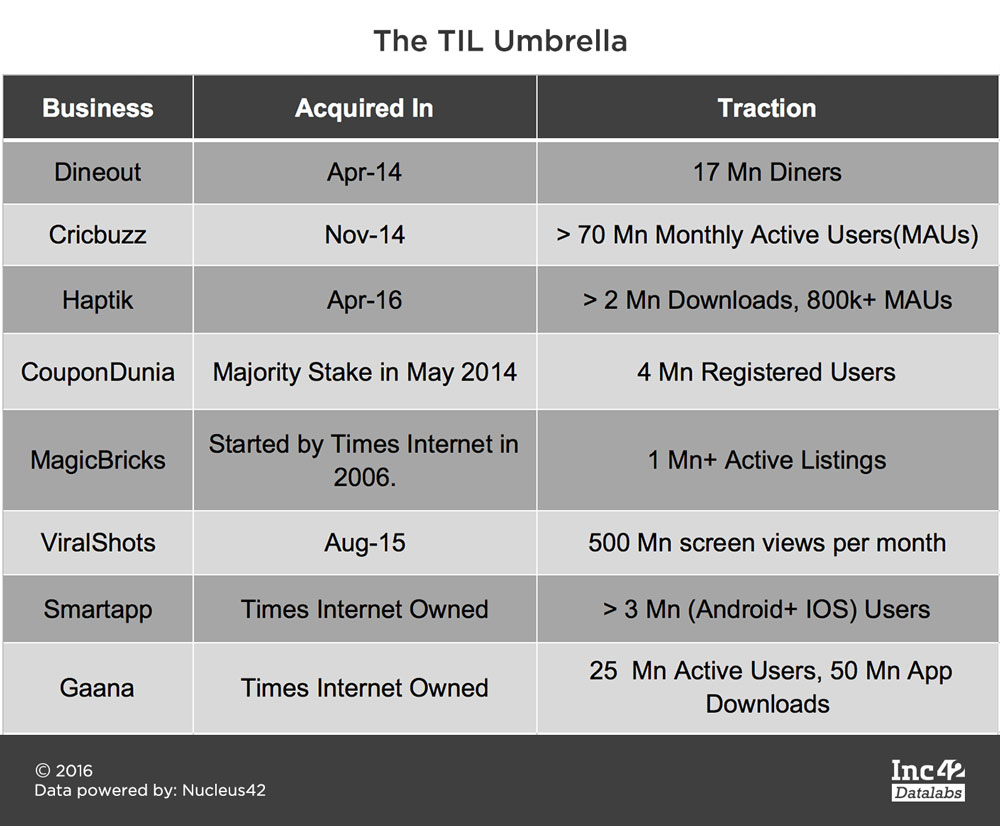
Explains Gautam, “If you look at CouponDunia or Dineout in our portfolio, a large part of them will be classified as utilities and transactions to various extents. We have 37 businesses but the audience is unified. If we can move a user from Cricbuzz to Dineout, our ability to monetise that user is tremendous. If I understand the interest of that user, I can nudge him to many other businesses. So my cost of customer acquisition gets slashed by as much as a factor of 10 and my monetisation or lifetime value of the user multiplies tenfold. Thus, the power of the platform acts as a force multiplier for all the businesses.”
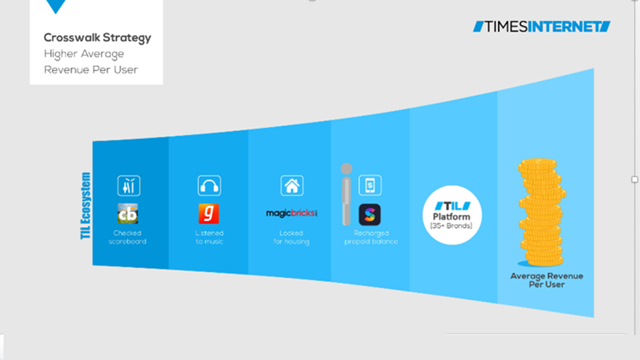
He explains further by invoking the concept of toothbrush apps – apps that are habit forming and used daily. So if the group brings its reach to convert the average user to these apps, monetisation increases multiple times. To facilitate this, the platform has been capturing all the interactions that happen on any of its properties or businesses.
Around 60,000 rules are then run against that data to categorise the interaction into audience buckets. There are about 33K audience types which have been defined. Thereafter, now that the platform has this knowledge about a particular user whether he likes music or dining out or buying stocks, he can be conveniently nudged to the relevant properties. Businesses benefit heavily from the crosswalk such as Cricbuzz, which benefited heavily from the IPL season and saw a significant boost to their traffic from Times Internet. Thus, each property is able to leverage the network effect of the umbrella brand to drive traffic to them.
But with 37 different businesses under its fold, how does TIL leverage them to define its vision and growth path ahead?
For Gautam, that boils down to one simple thing – engagement. He says,
“We want to have engaged users across daily walks of life starting with news, listening to music or following a game. It’s not a single company like Amazon so that I can say this is what we do. Broadly, we can say that we are trying to get a lion’s share of the user’s engagement time of what he does with his 24 hours. Our aim is to have satisfied engaged users in the digital arena.”
And for that, he is bullish on the future of digital media. He says, “For us, over 70% of the consumption is happening over mobiles. And this is the easiest way to consume. People will innovate, they will find ways to deliver you content the way you like, and every reaction here can be measured and improvised. It aligns to what the consumer wants and how he is evolving. Other medias don’t have the ability to evolve as much.”
The challenge, however, is to figure out that amidst this rising consumption, in what manner will the next gen audiences consume. “That is what we have to learn,” concludes Gautam.
[This interview is based on a conversation Gautam Sinha had with Inc42’s Pooja Sareen.]



